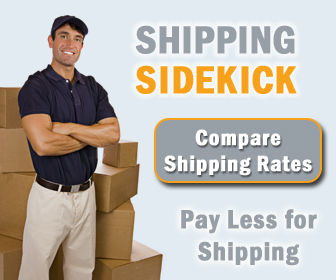Outsourcing Logistics and Transportation: A Game-Changer for Your Business
In today's fast-paced business world, companies need to focus on their core competencies to stay competitive. Outsourcing logistics and transportation needs is one way to achieve this goal. This blog post will discuss the benefits of outsourcing logistics and transportation, the differences between third-party and fourth-party providers, and how to determine which option is best for your business.
Benefits of Outsourcing Logistics and Transportation
Outsourcing logistics and transportation has several benefits for businesses, including:
-
Cost Savings: Outsourcing your logistics and transportation needs can help reduce costs associated with operating your own fleet, maintaining a warehouse, and hiring and training employees to manage these operations. A third-party or fourth-party logistics provider can offer economies of scale, resulting in reduced transportation costs, improved efficiency, and reduced inventory carrying costs.
-
Access to Expertise and Technology: A third-party or fourth-party logistics provider has specialized expertise in managing logistics and transportation operations. They have access to the latest technology, software, and equipment needed to efficiently manage and track shipments, which can help your business stay competitive.
-
Improved Focus: Outsourcing logistics and transportation allows your business to focus on core competencies and strategic initiatives, rather than being bogged down by the day-to-day management of logistics and transportation operations.
-
Improved Flexibility: Outsourcing logistics and transportation provides businesses with greater flexibility in responding to changes in demand, adjusting inventory levels, and adapting to new markets. This allows businesses to be more agile and responsive to customer needs.
Third-Party vs. Fourth-Party Logistics Providers
When outsourcing logistics and transportation, businesses can choose between third-party and fourth-party logistics providers. While both options offer benefits, there are key differences between the two.
Third-Party Logistics (3PL) Providers: A third-party logistics provider offers a variety of logistics and transportation services, including warehousing, distribution, transportation, and freight forwarding. 3PL providers manage all or part of the supply chain for their clients. They are typically responsible for managing transportation, warehousing, and other logistics-related activities. 3PL providers are an ideal option for businesses that want to outsource their logistics and transportation needs to a single provider.
Fourth-Party Logistics (4PL) Providers: What is a 4pl? A fourth-party logistics provider is a more strategic option than a 3PL provider. 4PL providers offer a broader range of services that focus on the management and optimization of the entire supply chain, rather than just specific logistics functions. 4PL providers act as a single point of contact for their clients, managing and coordinating multiple 3PL providers and other logistics-related activities. They are an ideal option for businesses that require a more strategic approach to their logistics and transportation needs.
Determining Which Option is Best for Your Business
When determining whether to use a third-party or fourth-party logistics provider, businesses should consider the following factors:
-
Complexity of Supply Chain: If your supply chain is complex and involves multiple suppliers, locations, and transportation modes, a 4PL provider may be a better option as they can provide a more holistic approach to supply chain management.
-
Level of Control: If you prefer to have greater control over your logistics and transportation operations, a 3PL provider may be a better option. 3PL providers can offer more customized solutions and allow you to retain more control over the logistics and transportation processes.
-
Resource Availability: If you have limited resources to manage your logistics and transportation operations, outsourcing to a 3PL or 4PL provider may be a good option. Outsourcing can free up resources to focus on core competencies and strategic initiatives.
-
Cost: Cost is always a factor when outsourcing logistics and transportation operations. Businesses should evaluate the total cost of outsourcing logistics and transportation, including fees and charges associated with a third-party or fourth-party logistics provider, compared to the cost of managing these operations in-house. Additionally, businesses should consider the potential cost savings associated with outsourcing, including reduced inventory carrying costs, improved efficiency, and reduced transportation costs.
-
Business Goals: Finally, businesses should consider their overall business goals when choosing between a 3PL or 4PL provider. If their focus is on improving supply chain efficiency and reducing costs, a 3PL provider may be the best option. On the other hand, if they are looking for a strategic partner to help optimize their entire supply chain and drive growth, a 4PL provider may be the better choice.
Outsourcing logistics and transportation operations can provide significant benefits to businesses, including cost savings, access to expertise and technology, improved focus, and greater flexibility. When choosing between a third-party or fourth-party logistics provider, businesses should consider the complexity of their supply chain, level of control, resource availability, cost, and business goals. By selecting the right logistics and transportation partner, businesses can optimize their supply chain, reduce costs, and improve overall efficiency, driving long-term success and growth.

